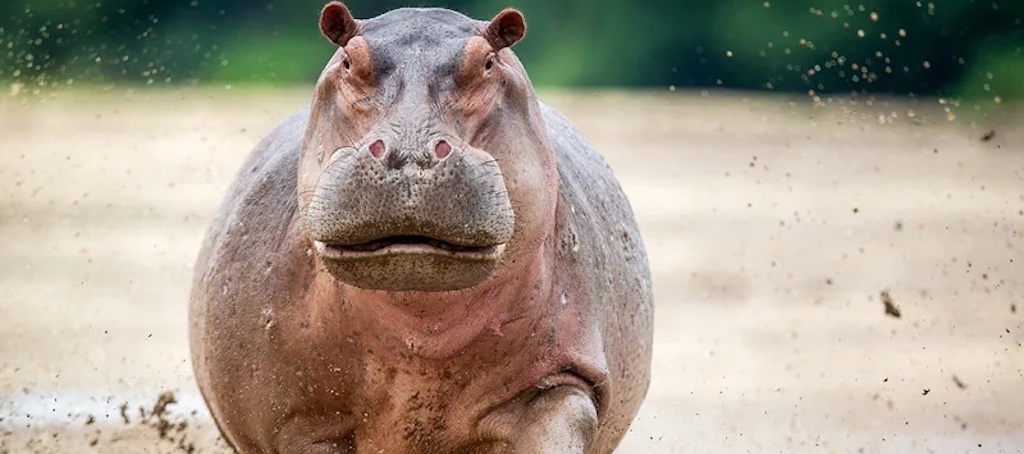The media likes to call them “cocaine hippos.” And there are a lot of them. Back when Pablo Escobar was the world’s most notorious drug kingpin, he was so decadent that he imported animals to his Colombian compound that, ecologically, shouldn’t be there. Zebras, giraffes, kangaroos, rhinoceroses. And four hippos. After Escobar’s death in 1993, most of these animals either died or were sent to zoos. But not the hippos. There are now about 170 of them, descended from the original quartet, who’ve long posed a threat to the nation’s ecosystem.
Perhaps they won’t be menace for much longer. Per The New York Times, after some 30 years of inaction, the nation’s officials have decided on some ways to finally reign them in. The plan is to sterilize some, euthanize others, and relocate others to sanctuaries in other countries.
They’re already hard at work: On Friday one official said they’d already surgically sterilized four hippos: two males, two females. The goal is to sterilize 40 within the year.
Escobar brought the original four hippos to his lavish estate in the 1980s, where they joined a menageries of wild animals, there to entertain his guests and show off his wealth. After Escobar was killed in a shootout in Medellín, the hippos took their lives into their own hands. As their numbers exploded, local reaction was a mix of affection and dread. In 2009, a hunting party of Colombian soldiers drew public ire after shooting and killing one of the so-called “cocaine hippos,” name of Pepe.
Sterilizing hippos is not easy, as one can imagine:
Hippos can weigh more than three tons and spend most of their days wallowing in the water, so they’re easiest to capture at night. Experts said they are generally tranquilized with a dart and undergo surgery wherever they land. If they run into the water after being hit with a dart, they could drown, experts said.
“This procedure is very dangerous since the veterinarian must be very skilled to sterilize it in the shortest time possible, before it wakes up,” said Germán Jiménez, a biologist at the Pontifical Javeriana University in Colombia.
The good news, though, is that at least Colombians won’t have to bid adieu to all the cocaine hippos.
(Via NYT)

